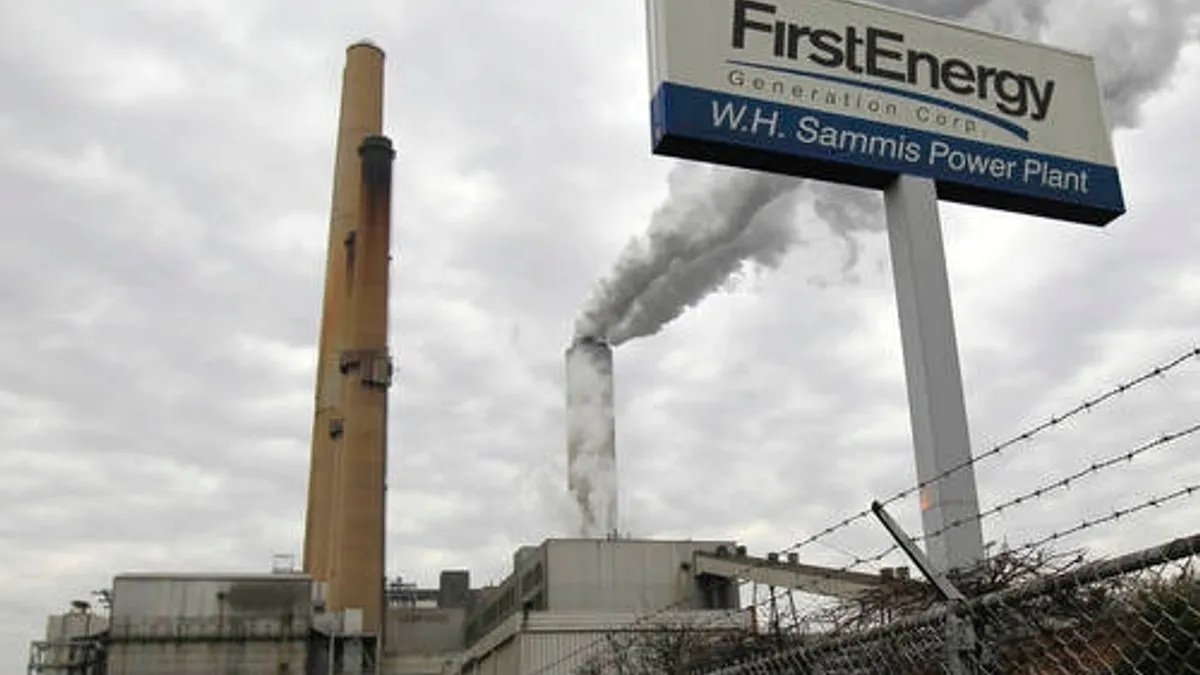Dive Brief:
- The Ohio Public Utilities Commission has rejected challenges to a $204 million annual subsidy approved for First Energy last year. Opponents say they will appeal to the state's Supreme Court.
- FirstEnergy will be allowed to collect the additional revenue for three years to be spent on grid modernization efforts.
- The Environmental Defense Fund and Sierra Club were among those challenging the higher rates. They say there is insufficient oversight of how the money is spent, saying it would go towards propping up coal and nuclear facilities instead.
Dive Insight:
Ohio regulators denied rehearing, but environmental advocates say they expect a different outcome in the courts.
"Last year, federal regulators came to the rescue and overturned Ohio bailouts that would have propped up FirstEnergy's old coal and nuclear plants. We are confident the Ohio Supreme Court will do the same and reject the regulators' latest giveaway to dirty energy," Environmental Defense Fund Director Dick Munson said.
Many issues rejected by PUCO were determined to have been raised in prior filings. The order can be found here.
Following the decision to allow FirstEnergy to collect additional revenues last October, PUCO Chairman Asim Haque said in a statement the Distribution Modernization Rider's primary purpose "is to ensure that FirstEnergy retains a certain level of financial health and creditworthiness so that it can invest in future distribution modernization endeavors."
An initial proposal from FirstEnergy included power purchase agreements that covered the Davis-Besse Nuclear Power Station in Oak Harbor, the W.H. Sammis coal-fired plant in Stratton, and a portion of the output of Ohio Valley Electric Corporation (OVEC) units owned by its generating affiliate FirstEnergy Solutions. In total, the PPA covered 3,300 MW.
The Federal Energy Regulatory Commission (FERC) subsequently blocked those agreements, rescinding affiliate waivers necessary to execute the transactions. That led FirstEnergy to file a separate proposal for regulatory support that did not include PPAs, but instead added monthly surcharges to customer bills as part of its rate plan.














